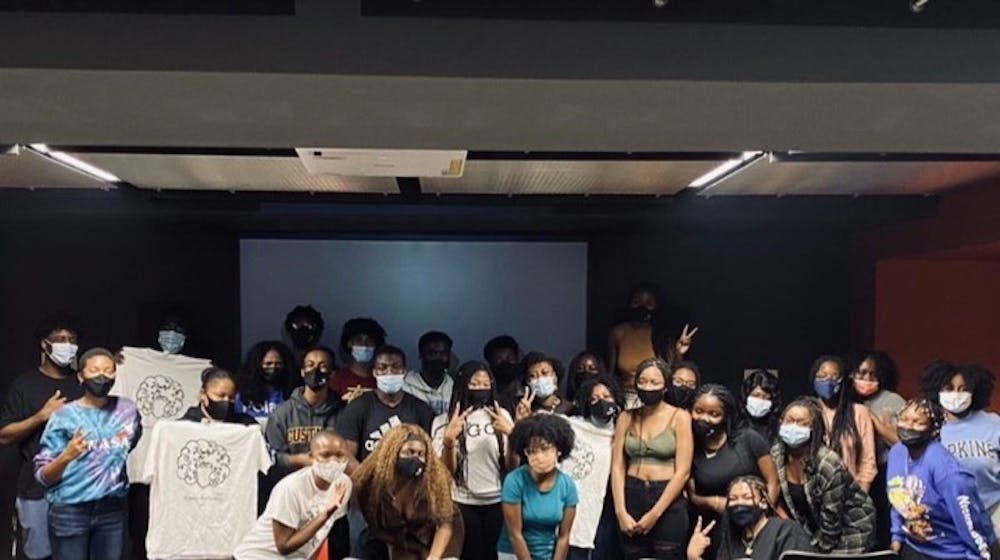In the spring of 2018, Knotty by Nature (KBN) was founded by then-sophomores Jendyi Dickerson and Zainab Jimoh. The founders took initiative after realizing there were no organizations on campus that catered specifically to the hair struggles of Black women.
In an interview with The News-Letter, junior Christal Oji, a board member of KBN, explained that the name represents the duality of their hair as well as the struggles Black people face because of it.
“In the past, society has associated natural hair with the idea of radical Blackness and thus pushed it away. Today, those stigmas have not completely faded and so natural hair is still met with shock and sometimes distaste,” she said. “However, it's just the hair that grows out of our heads — we are knotty by nature — and so we deal with it.”
Oji explained that KBN is focused on the empowering those with natural hair in the Black and brown community. She added that they embrace diversity and are open to anyone interested in natural hair.
“We want to create a safe space for all our members at Hopkins regardless of gender, race or ethnic origins while also being open to dialogue about the controversial struggles men and women may face because of their natural hair,” she said. “We want our members to be confident and comfortable in their own bodies, in spite of the societal pressures around them.”
Sophomore Chukwudumebi Nwankwo, the co-community engagement chair of KBN, echoed the sentiment, stating that KBN aims to create an inclusive community for people of all backgrounds in an interview with The News-Letter.
“Hair is just such a big thing in how people perceive you and how you perceive yourself. It allows you to have conversations around it,” she said. “How people can support you through that is what KBN is all about.”
As Hopkins students returned to campus for an in-person semester, KBN is revamping their organization. According to Oji, members are planning to engage in more community service events in order to promote their mission across Baltimore.
“I’ve always felt as though KBN is one of the organizations on the campus that goes beyond the ‘Hopkins Bubble’ to engage with members and outside partners,” she said.
The members expressed their excitement about the upcoming partnership with a local women’s shelter. KBN plans on donating contraceptives and feminine hygiene products for women in need in Baltimore.
In addition, Nwankwo is hopeful that KBN can revive its interactive events such as their DIY-conditioner night, where members taught people ingredients that are good for certain hair types and helped them create their own conditioners. KBN also held protective-style tutorials where they invited experienced hairstylists to teach their members how to cornrow, twist and braid their hair.
Nwankwo further commented that through these events she hopes to encourage people to embrace their hair.
“Just being able to be one with yourself and be happy with what you see is very important,” she said.
The members also reflected on some improvements they hope to make this semester. They hope to boost member engagement while simultaneously improving consistency in involvement of club members.
Nwankwo noted that KBN aims to reach the size and engagement of other Black-affiliated clubs on campus. Oji believes that a diverse array of new members will be beneficial to KBN and help the club figure out its direction.
Senior Nordia Simmonds, president of KBN, found that one of the challenges the group had faced in increasing membership was fighting the misconception that KBN was just a hair club, especially one that is exclusive to Black and brown women.
“The foundation of everything we do is providing a safe place for anyone to come and respectfully express their thoughts, concerns, questions or interests about anything regarding hair,” she said.





